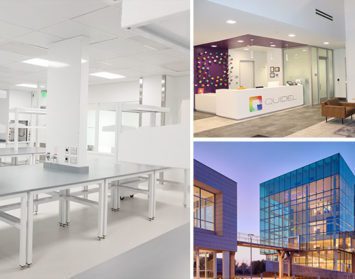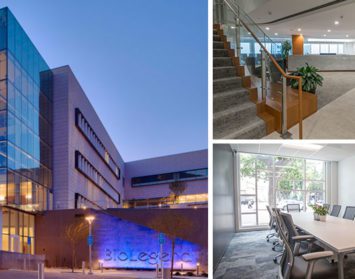By Dean Petersen and Steven Gorup
It’s been 9 months since California’s new Title 24 energy code requirements went into effect, and suffice to say, they have had a significant impact on commercial tenants. Namely, the cost of renovating, expanding, or building new office space can be far more expensive than you might expect.
Here’s a recap of what the new Title 24 requirements entail: Light fixtures must consume even less energy than previously required and have multi-level dimming capability. They must also be automatically controlled meaning that, on a bright sunny day, they automatically dim based on how much sunlight is coming in through the windows. Typically this can only be achieved by replacing existing fluorescent lamped fixtures with new LED fixtures. You also need to have one power outlet with automatic shut-off capability for every outlet that has continuous power – literally a second power outlet added at every desk or workstation.
These requirements don’t come cheap. As a matter of fact, the cost of tenant improvements in commercial properties has increased by as much as $10-$12 per square foot for remodels and $6-$8 per square foot for new construction. Needless to say, an additional $10-$12 per square foot can really add up.
Case in point, if you have a 20,000 square foot space and want to expand by another 10,000 square feet, you can be looking at $300,000-$360,000 in addition to what you’re already paying for the renovations. Why so much? Because even if you don’t intend to remodel the existing space as part of your expansion, the new Title 24 requirements kick in if you touch more than 10% of the lighting, which you most certainly will as you unify two adjacent spaces. So, not only will you have to upgrade the lighting and controls in your expansion, you will also have to do the same in your existing space.
To make matters worse, tenant improvement allowances from landlords are not keeping up with the escalating costs of remaining compliant from what we’ve seen. Instead, tenants today can expect the lion’s share of their T.I. allowances to be eaten up just by modifying lighting and HVAC systems to comply with the new code – items they probably never intended to replace. Can you imagine stretching every dollar to buy a home only to find that you need to replace $10,000 worth of lighting before you move in? That’s what’s happening to commercial tenants today.
Over the long term, the benefit of the new Title 24 requirements will be lower operating expenses via lowered utility bills. However, those who sign short-term leases won’t likely recoup the costs of the improvements before their leases expire.
At Hughes Marino it’s our job to make sure that our clients secure space for a fair price and with full understanding of what their leases entail. This includes negotiating a tenant improvement allowance that will be adequate for any upgrades you need to make to your space. We strongly encourage you not to go it alone when signing a lease, or taking on a renovation or expansion. Our construction management team knows Title 24 inside and out, and will make sure it doesn’t deliver a blow to your bottom line.
Dean Petersen is senior vice president of Hughes Marino, a global corporate real estate advisory firm that exclusively represents tenants and buyers. Contact Dean at 1-844-662-6635 or dean@hughesmarino.com to learn more.
Steven Gorup is a director at Hughes Marino, a global corporate real estate advisory firm that exclusively represents tenants and buyers. Contact Steven at 1-844-662-6635 or steven@hughesmarino.com to learn more.












